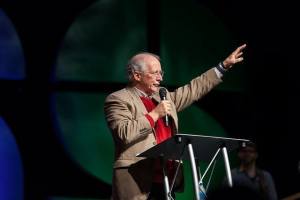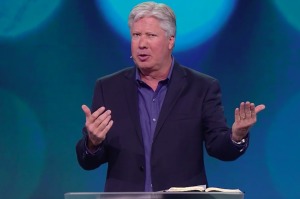Gay at Birth? Americans' Views Split on the Issue, Gallup Poll Shows
About two-fifths, 42 percent, of American adults believe those with same-sex attraction are born with the trait while more than a third, 37 percent, say that homosexuality is the result of upbringing and environment, according to the results of a Gallup poll released Wednesday.
When Gallup first began asking the question in 1977, only 13 percent said homosexuality is something people are born with, while 56 percent said it was due to upbringing and environment. 2001 was the first year that Gallup polling showed more people, 40 percent, believing that same-sex attraction was already determined at birth. Since then, polling on the question has changed little, fluctuating within the margin of error.
Gallup's original question wording was, "In your view, is homosexuality something a person is born with, or is homosexuality due to factors such as upbringing and environment?"
The wording was rotated, putting "upbringing and environment" first, with half the respondents. After 2008, the question's wording was changed. "Homosexuality" was replaced with "gay or lesbian."
There were also some demographic variations. Those who were most likely to say that homosexuality is a trait one is born with were whites, females, liberals, Democrats, high-income earners, college educated, and those who seldom or never attend church.
Most of those characteristics are consistent with previous years, Justin McCarthy wrote for Gallup, except for one - race. The belief among nonwhites that homosexuality is a result of environment and upbringing was "substantially higher this year."
One possible reason that Americans are divided on the issue, McCarthy added, is the "lack of input from the scientific community."
The American Psychological Association, for instance, has stated, "there is no consensus among scientists about the exact reasons that an individual develops a heterosexual, bisexual, gay, or lesbian orientation."
Research has suggested there is a likely genetic component tied to same-sex attraction for men, but not women. But scientists have not found a so-called "gay gene," and they understand little about how the genetic component works.
In February, for instance, Northwestern University psychologist Michael Bailey revealed his research showing that men with a certain genetic marker were 40 percent more likely to be gay. Not all gay men had the marker, however, and not all those who had the marker were gay.
"Our findings suggest there may be genes at play ... but it is not completely determinative; there are certainly other environmental factors involved. The study shows that there are genes involved in male sexual orientation. Although this could one day lead to a pre-natal test for male sexual orientation, it would not be very accurate, as there are other factors that can influence the outcome," he said.
The May 8-11 poll of 1,028 adults has a margin of error of plus or minus 4 percentage points for the full sample.





























